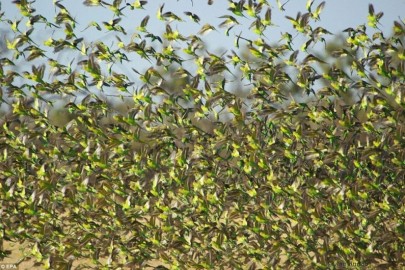After a winter of record-breaking wetness and flooded lowlands, Stephen selects some poetry to make us feel better about water…
In view of recent events, readers from the United Kingdom may be justifiably ill-disposed towards poetic paeans to water. Thus, I beg their indulgence as we consider its beneficent qualities, as seen by Philip Larkin and William Wordsworth.
The following poem by Larkin may seem a bit out of character, but every so often he does go off on one of these lyrical excursions.
Water
If I were called in
To construct a religion
I should make use of water.Going to church
Would entail a fording
To dry, different clothes;My liturgy would employ
Images of sousing,
A furious devout drench,And I should raise in the east
A glass of water
Where any-angled light
Would congregate endlessly.Philip Larkin, The Whitsun Weddings (1964).
Just when you think that Larkin is all dreariness and astringency, out comes something like “Water.” As a matter of the simple beauty of words, it is hard to beat the assonance and consonance of “Where any-angled light/Would congregate endlessly.” “Endlessly” calls up the close of “High Windows” (written nearly thirteen years after “Water”): “Rather than words comes the thought of high windows:/The sun-comprehending glass,/And beyond it, the deep blue air, that shows/Nothing, and is nowhere, and is endless.”
Next, let us consider a poem written by William Wordsworth late in his life. The conventional wisdom is that Wordsworth’s best years as a poet came to an end around the time that he turned 40 (in 1810). Even Matthew Arnold, who greatly admired Wordsworth’s poetry, accedes to this view: “Wordsworth composed verses during a space of some sixty years; and it is no exaggeration to say that within one single decade of those years, between 1798 and 1808, almost all his really first-rate work was produced.” (Essays in Criticism, Second Series, “Wordsworth.”)
However, there are still gems to be found in Wordsworth’s later years. The following poem was written in 1846, when Wordsworth was 76. It is untitled.
The unremitting voice of nightly streams
That wastes so oft, we think, its tuneful powers,
If neither soothing to the worm that gleams
Through dewy grass, nor small birds hushed in bowers,
Nor unto silent leaves and drowsy flowers, —
That voice of unpretending harmony
(For who what is shall measure by what seems
To be, or not to be,
Or tax high Heaven with prodigality?)
Wants not a healing influence that can creep
Into the human breast, and mix with sleep
To regulate the motion of our dreams
For kindly issues — as through every clime
Was felt near murmuring brooks in earliest time;
As, at this day, the rudest swains who dwell
Where torrents roar, or hear the tinkling knell
Of water-breaks, with grateful heart could tell.William Wordsworth, The Poetical Works, Volume Four (edited by Ernest de Selincourt and Helen Darbyshire) (1947).
The thought expressed in the poem is a lovely one: the sound of moving water enters our dreams as we sleep and takes us to peaceful places. However, I sometimes feel that Wordsworth should have left out the parenthetical aside that appears in Lines 7 through 9. I find the syntax and the meaning of the lines a bit strange and out-of-place. Moreover, cutting them out would reduce the poem to 14 lines, and potentially turn it into a fine sonnet.












I like the simple use of the word ‘in’ at the beginning of the Larkin poem. Not ‘on’, ‘in’. Need a religion? Get Larkin in. As you might get in an archbishop. Or a plumber.
Mr. Wilkinson: thank you very much. Great point! That hadn’t occurred to me. It suits Larkin, I think.
For some reason, your comment prompted me to think of “Days,” another Larkin poem in which experts are called in (although he doesn’t use “in”):
What are days for?
Days are where we live.
They come, they wake us
Time and time over.
They are to be happy in:
Where can we live but days?
Ah, solving that question
Brings the priest and the doctor
In their long coats
Running over the fields.